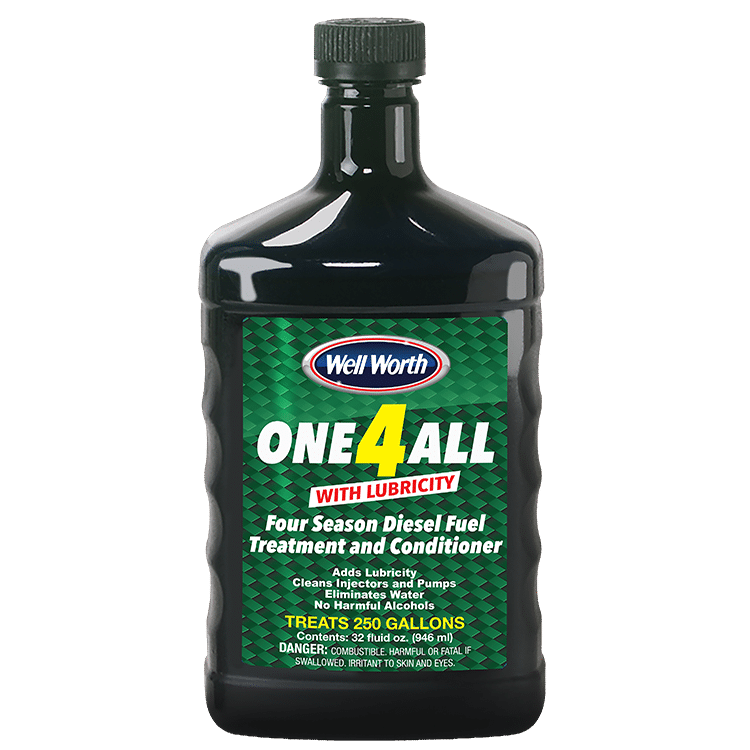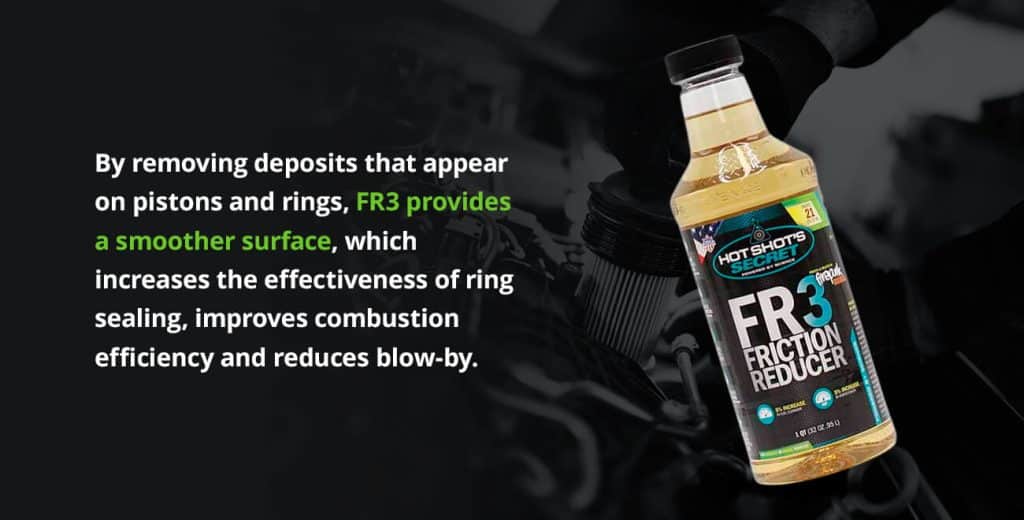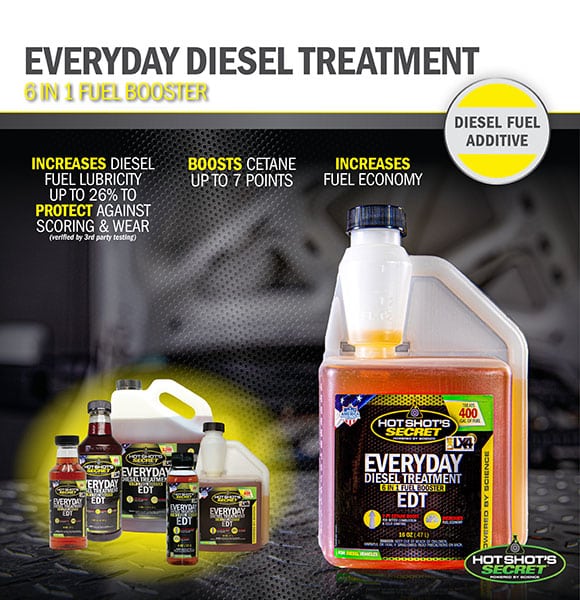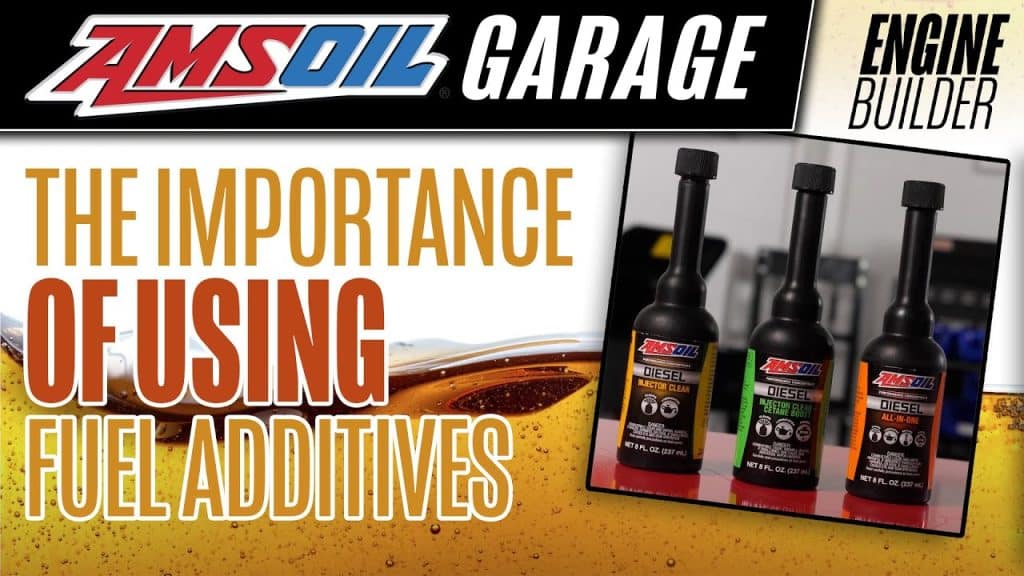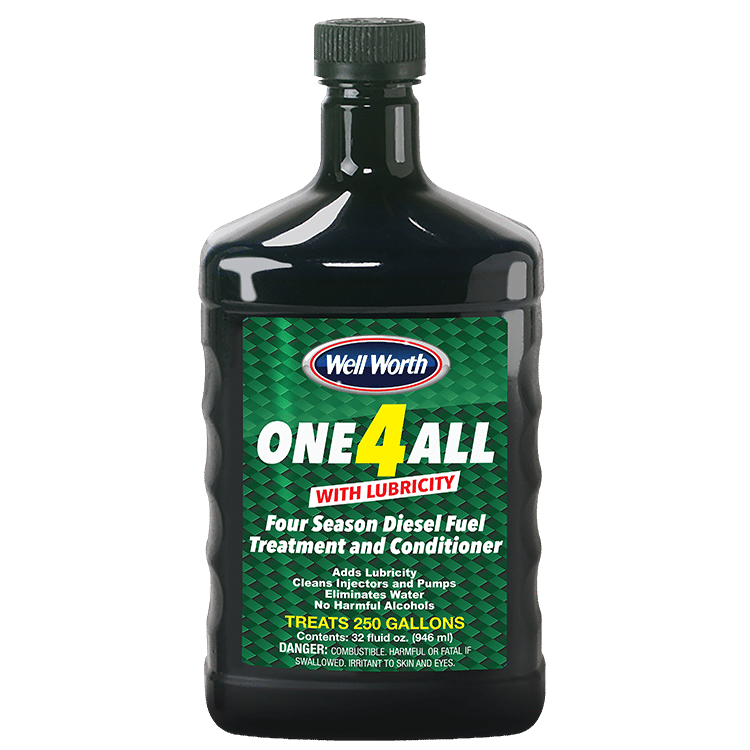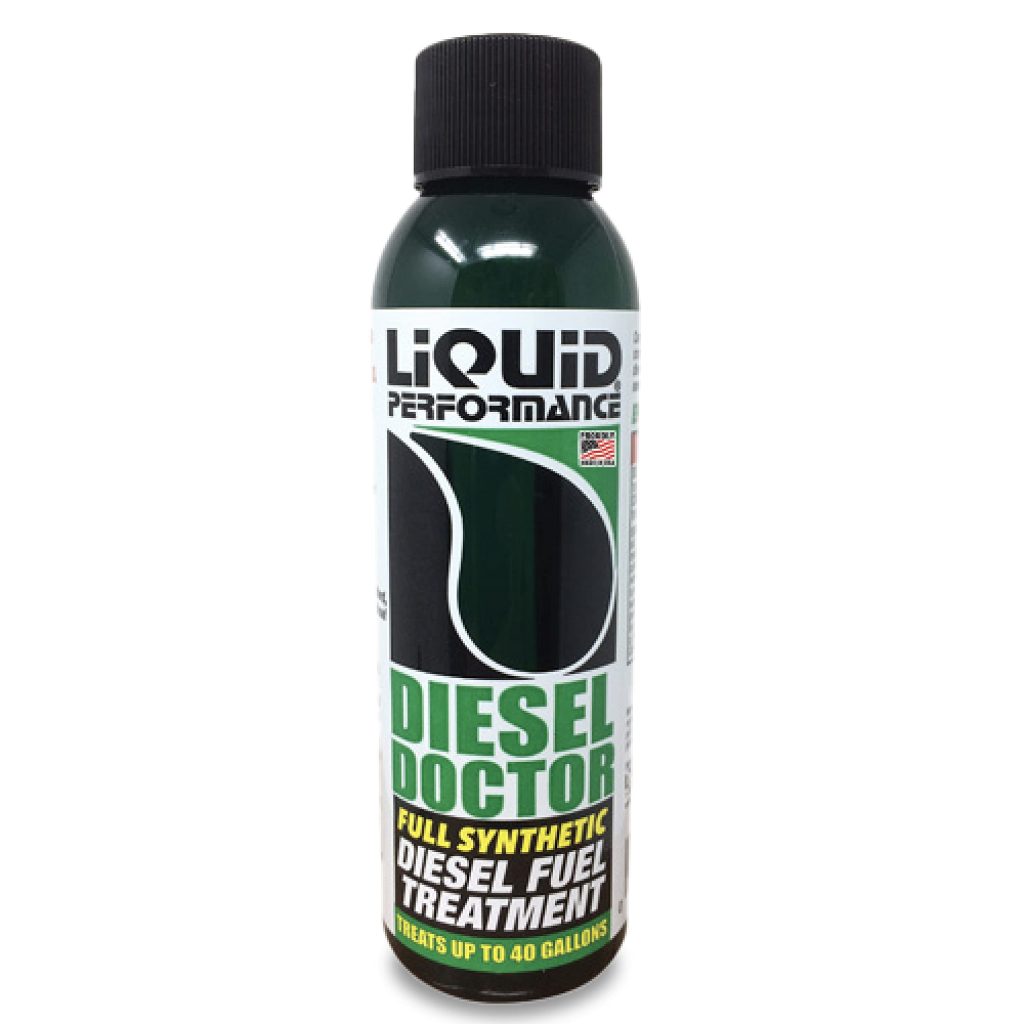In today’s automotive world, where fuel efficiency and engine longevity are top priorities, many wonder if diesel fuel treatments live up to their claims. With countless brands and types of treatments available on the market, it’s easy to become overwhelmed by the options. In this article, we explore the effectiveness of diesel fuel treatments and provide insight into whether investing in these products is indeed worth it for your vehicle’s performance and overall maintenance.
Benefits of Diesel Fuel Treatments
When it comes to maintaining the performance and longevity of our diesel engines, using fuel treatments can offer a range of benefits. Here are some key advantages that make diesel fuel treatments worth considering:
Improved Fuel Efficiency
One of the significant advantages of using diesel fuel treatments is the potential for improved fuel efficiency. These treatments often contain additives that can enhance combustion efficiency, resulting in better mileage for your vehicle. By optimizing the fuel-burning process, fuel treatments can help us get the most out of every drop of diesel, ultimately saving us money at the pump.
Increased Power and Performance
Diesel fuel treatments can also provide a boost in power and overall performance. By improving the combustion process, these treatments can help maximize the energy released from the fuel. This, in turn, can lead to increased horsepower, torque, and acceleration. Whether we use our diesel vehicles for work, towing, or recreational purposes, the added power and performance can make a noticeable difference in our driving experience.
Extended Engine Life
Regularly using diesel fuel treatments can contribute to the extended lifespan of our engines. Fuel treatments often contain lubricating agents that help reduce friction and wear in the engine’s internal components. This helps the engine run smoother and minimizes the risk of premature engine failure. By taking care of our engines with fuel treatments, we can enjoy a longer life expectancy for our beloved diesel vehicles.
Reduced Emissions
In today’s world, where environmental concerns are at the forefront of our minds, using diesel fuel treatments can make a positive impact. Some treatments, such as nitrogen oxides (NOx) and particulate matter (PM), are specifically formulated to reduce harmful emissions. Fuel treatments can help us contribute to a cleaner and healthier environment by reducing these pollutants.
Prevention of Fuel System Issues
Diesel fuel treatments can also play a crucial role in preventing fuel system issues. Over time, diesel fuel can accumulate contaminants, such as dirt, water, and microbial growth. These contaminants can lead to clogged filters, reduced fuel flow, and potential damage to fuel injectors and pumps. However, using fuel treatments containing water contaminant removers and injector cleaners can help keep our fuel system clean and free from harmful deposits.
Types of Diesel Fuel Treatments
Now that we understand the benefits of diesel fuel treatments let’s explore the different types available in the market. Each type serves a specific purpose in optimizing diesel fuel performance and engine maintenance.
Cetane Boosters
Cetane boosters are additives designed to increase the cetane number of diesel fuel. The cetane number represents the fuel’s combustion quality, with higher cetane numbers indicating better ignition and combustion characteristics. Adding cetane boosters to diesel fuel can achieve faster and more efficient combustion, leading to improved engine performance and reduced emissions.
Fuel Stabilizers
Fuel stabilizers are additives that help prevent the deterioration of diesel fuel during storage. When diesel fuel is stored for extended periods, it can undergo chemical reactions that result in the formation of gums and solids. These deposits can clog fuel filters and injectors, leading to poor engine performance. Fuel stabilizers work by inhibiting these reactions, ensuring the fuel remains stable and ready for use even after prolonged storage.
Injector Cleaners
Injector cleaners are additives formulated to remove deposits and contaminants from fuel injectors. Over time, fuel injectors can become clogged with carbon deposits and varnish, negatively impacting fuel atomization and spray patterns. Injector cleaners help dissolve these deposits, allowing the injectors to deliver fuel efficiently. We can maintain optimal engine performance and fuel economy by keeping our fuel injectors clean.
Anti-Gel Additives
Anti-gel additives are essential for those living in regions with cold climates. When exposed to extremely low temperatures, diesel fuel can form waxes that solidify and clog fuel lines and filters. Anti-gel additives modify the diesel fuel’s crystallization point, preventing the formation of wax crystals. This ensures that the fuel remains fluid and flows freely, even in freezing conditions, allowing us to start our vehicles and avoid costly damage.
Water Contaminant Removers
Water contaminant removers are additives that help eliminate water from diesel fuel. Water can enter the fuel system through condensation or from contaminated fuel. When water is present in the fuel, it can cause corrosion, fuel line freezing, and bacterial growth. Water contaminant removers work by dispersing water molecules and allowing them to safely pass through the fuel system without causing any harm. This helps us maintain a clean fuel system and optimizes engine performance.
Effectiveness of Diesel Fuel Treatments
Now that we know the types of diesel fuel treatments available, it’s natural to question their effectiveness. Let’s consider the following factors that can provide insights into the effectiveness of diesel fuel treatments:
Scientific Studies and Research
Numerous scientific studies and research have investigated the effectiveness of diesel fuel treatments. These studies often evaluate emissions reductions, engine performance improvements, and fuel economy enhancements. By analyzing the results of such studies, we can better understand the efficacy of diesel fuel treatments.
Testimonials and Consumer Feedback
Another valuable source of information regarding the effectiveness of diesel fuel treatments is testimonials and feedback from consumers who have used these products. Hearing about real-world experiences can give us insights into the benefits and potential drawbacks of different fuel treatments. It’s essential to consider a variety of testimonials to get a balanced perspective.
Industry Expert Opinions
Insights from industry experts, including automotive technicians, mechanics, and diesel engine manufacturers, can also shed light on the effectiveness of diesel fuel treatments. These professionals have hands-on experience and in-depth knowledge of diesel engines and the impact of fuel treatments. Their opinions can help us make informed decisions about which fuel treatments to choose and how to use them effectively.
Considering these factors collectively can contribute to a well-rounded understanding of the effectiveness of diesel fuel treatments. While individual results may vary based on specific circumstances, the overall consensus supports the positive impact that these treatments can have on diesel engines.
Situations Where Diesel Fuel Treatments Are Beneficial
Now that we have established the benefits and types of diesel fuel treatments let’s explore the situations where these treatments can be particularly advantageous:
Poor Quality Fuel
In cases where we have no control over the quality of diesel fuel available, using fuel treatments becomes crucial. Poor-quality fuel may contain higher amounts of contaminants, such as dirt, water, and impurities, which can adversely affect engine performance. Fuel treatments with water contaminant removers and injector cleaners can help mitigate these issues and protect our engines.
Extreme Temperatures
Extreme hot or cold temperatures can pose challenges for diesel engines. In icy conditions, the wax in diesel fuel can solidify and lead to fuel line blockages. On the other hand, in scorching heat, diesel fuel may become volatile and prone to vapor lock, resulting in poor engine performance. We can optimize engine performance and minimize the risk of fuel-related issues by using anti-gel additives in cold climates and fuel stabilizers in hot climates.
Frequent Short Trips
For those who predominantly drive short distances, such as stop-and-go city driving, diesel fuel treatments can have significant benefits. Short trips do not allow the engine to reach its optimal operating temperature, leading to incomplete combustion and the accumulation of deposits. Using fuel treatments with injector cleaners and cetane boosters can enhance combustion efficiency and prevent the formation of harmful deposits in such driving conditions.
Older Vehicles
If we own older diesel vehicles, fuel treatments can significantly improve their performance and reliability. Over time, older engines may experience increased wear and decreased fuel efficiency. Using fuel treatments with lubricating agents and injector cleaners can help reduce friction, minimize wear, and prolong the life of our aging engines.
Heavy Load or High RPM Usage
Diesel engines often power heavy-duty vehicles and equipment subjected to demanding tasks like towing or carrying heavy loads. These scenarios strain the engine, and fuel treatments can help optimize performance. We can ensure that our engines deliver the power and efficiency needed for these challenging tasks by using treatments with cetane boosters, injector cleaners, and lubricating agents.
In these specific situations, diesel fuel treatments can provide the necessary support to help our engines overcome the unique challenges they face.
Potential Drawbacks of Diesel Fuel Treatments
While diesel fuel treatments offer various benefits, it’s important to acknowledge the potential drawbacks that come with their usage:
Possible Incompatibility with Fuel Systems
Not all diesel fuel treatments are compatible with every fuel system. Some treatments may contain additives or chemicals that could react negatively with specific fuel system components, such as seals, O-rings, or rubber hoses. It is essential to read the product labels and consult experts, such as vehicle manufacturers or service technicians, to ensure that our treatment is compatible with our specific fuel system to avoid unwanted issues or damage.
Financial Costs
Regularly using diesel fuel treatments can add to the overall cost of vehicle maintenance. While the cost per treatment is typically affordable, it can accumulate over time, mainly if we use our vehicles frequently or own multiple diesel-powered machines. Considering the financial impact of incorporating fuel treatments into our maintenance routine is essential, and assessing whether the potential benefits outweigh the added expense.
Uncertainty of Long-term Benefits
There may be some uncertainty regarding the long-term benefits of diesel fuel treatments. While they can provide immediate improvements in fuel efficiency, power, and engine cleanliness, monitoring these benefits over an extended period is essential. Factors such as changing fuel formulations, engine wear, and maintenance practices can influence the sustained effectiveness of fuel treatments. Regular evaluation and reassessment of their impact on our engines is necessary to ensure continued benefits.
By weighing the potential drawbacks against the benefits and considering our circumstances, we can make informed decisions about incorporating diesel fuel treatments into our maintenance routine.
Choosing the Right Diesel Fuel Treatment
With many diesel fuel treatments available, choosing the right one can seem overwhelming. Here are some guidelines to help us make an informed decision:
Understanding Your Specific Needs
Begin by understanding the specific needs of your diesel engine. Assess its age, performance requirements, and any existing issues or concerns. This examination will help identify which benefits are essential for your engine and guide us in selecting the most suitable fuel treatment.
Researching and Comparing Brands
Conducting thorough research is crucial when considering diesel fuel treatments. Explore various brands, their reputations, and their product offerings. Look for independent reviews and evaluations to gauge the efficacy and reliability of different treatments. Comparing the attributes, ingredients, and customer feedback can help narrow the options.
Reading Product Labels and Specifications
Once we have shortlisted a few options, carefully read the product labels and specifications. Pay attention to the recommended dosage, compatibility with fuel systems, and any specific instructions or precautions. Ensuring the treatment aligns with our fuel system requirements and usage needs will help optimize results.
Seeking Professional Recommendations
When in doubt, seek professional recommendations, such as vehicle manufacturers, service technicians, or industry experts. These individuals possess knowledge and experience that can provide valuable insights tailored to your vehicle or equipment. Their recommendations can steer us towards the most appropriate and effective diesel fuel treatments.
By keeping these factors in mind and investing time in research, we can confidently choose a diesel fuel treatment that suits our needs and contributes to the optimal performance of our diesel engines.
How to Use Diesel Fuel Treatments
Proper usage of diesel fuel treatments is essential to reap the maximum benefits. Here are some critical considerations for effectively using these treatments:
Following Manufacturer’s Instructions
Always adhere to the manufacturer’s instructions provided with the diesel fuel treatment. The instructions will outline the recommended dosage and the proper method of application. Deviating from these instructions can result in ineffective treatment or potential damage to the fuel system.
Determining the Optimal Treatment Ratio
Determining the optimal treatment ratio for your specific vehicle or equipment is essential. This ratio is often based on factors such as the size of the fuel tank and the treatment concentration. Consult the product label or manufacturer’s instructions to calculate the correct amount of treatment needed to achieve the desired performance benefits.
Finding the Right Time for Application
The right time to apply the diesel fuel treatment is crucial for optimal results. Adding the treatment when the fuel tank is halfway to three-quarters full is generally recommended. This allows thorough mixing of the treatment with the fuel and ensures proper distribution throughout the system. Avoid adding the treatment when the tank is empty, as it may not mix adequately.
Storage and Handling Precautions
Taking necessary precautions when storing and handling diesel fuel treatments is essential. Keep the treatments in their original containers and store them in a cool, dry place away from direct sunlight. Ensure that containers are tightly sealed to prevent contamination or evaporation. Additionally, handle the treatments carefully, following any safety guidelines or warnings provided by the manufacturer.
By following these guidelines and using diesel fuel treatments as directed, we can optimize their effectiveness and enjoy the maximum benefits for our diesel engines.
Common Myths About Diesel Fuel Treatments
As with any product, several myths and misconceptions surround diesel fuel treatments. Let’s address some common myths and set the record straight:
They Can Fix All Fuel-related Issues
While diesel fuel treatments can address and mitigate various fuel-related issues, they are not a panacea for all problems. They are primarily designed for preventative maintenance and optimization of engine performance. Professional diagnosis and repair may be necessary if there are significant underlying issues with the fuel system or other parts of the engine.
They Cause Engine Damage
Diesel fuel treatments do not cause engine damage when used correctly and as directed. However, there is a risk of potential damage if incompatible treatments or higher than-recommended dosages are used. It’s crucial to thoroughly read and follow the manufacturer’s instructions to avoid negative consequences.
Every Diesel Vehicle Needs Treatment
While diesel fuel treatments offer numerous benefits, not every diesel vehicle necessarily requires their use. Factors such as the engine’s condition, fuel quality, and driving habits play a role in determining the necessity of treatments. Evaluating your specific circumstances and consulting with professionals is essential to determine whether incorporating fuel treatments into your maintenance routine is necessary.
By dispelling these myths, we can approach diesel fuel treatments with accurate information and make informed decisions about their usage.
Factors That Affect the Effectiveness of Diesel Fuel Treatments
The effectiveness of diesel fuel treatments can be influenced by several factors that are important to consider:
Fuel Quality
The quality of diesel fuel itself can impact the effectiveness of treatments. Fuel with higher contaminants, impurities, or poor composition may require more robust treatments or frequent use. Using higher-quality fuel in combination with treatments can further optimize their effectiveness.
Engine Condition
The engine’s condition plays a significant role in the effectiveness of diesel fuel treatments. Well-maintained engines with regular servicing and optimal components will likely benefit from fuel treatments. Older or poorly maintained engines may experience less dramatic improvements, but treatments can still enhance performance and longevity.
Maintenance Practices
Consistent and proper maintenance practices, including regular oil changes, filter replacements, and adherence to recommended service intervals, can enhance the effectiveness of diesel fuel treatments. Fuel treatments should be seen as a complement to good maintenance practices rather than a substitute.
Driving Habits
Driving habits, such as frequent idling, short trips, or aggressive driving, can impact the effectiveness of fuel treatments. Extended periods of idling or stop-and-go driving may limit the treatments’ ability to reach optimal efficiency. Adopting fuel-conscious driving habits and ensuring adequate warm-up periods can maximize the benefits of diesel fuel treatments.
By considering these factors and making conscious efforts to optimize conditions for fuel treatments, we can achieve the best possible results for our diesel engines.
Conclusion
In conclusion, diesel fuel treatments offer several benefits for enhancing our diesel engines’ performance, efficiency, and lifespan. They can improve fuel efficiency, increase power and performance, extend engine life, reduce emissions, and prevent fuel system issues. Different treatments, such as cetane boosters, fuel stabilizers, injector cleaners, anti-gel additives, and water contaminant removers, target specific aspects of diesel fuel optimization.
Scientific studies, consumer feedback, and industry expert opinions support the effectiveness of diesel fuel treatments. They are particularly beneficial in situations involving poor quality fuel, extreme temperatures, frequent short trips, older vehicles, heavy loads, or high RPM usage. However, it’s essential to be aware of potential drawbacks, such as incompatibility with fuel systems, financial costs, and uncertain long-term benefits.
Choosing the proper diesel fuel treatment requires understanding our needs, researching and comparing brands, reading product labels, and seeking professional recommendations. Proper usage of diesel fuel treatments involves following the manufacturer’s instructions, determining the optimal treatment ratio, finding the right time for application, and observing storage and handling precautions.
There are common myths about diesel fuel treatments, such as their ability to fix all fuel-related issues, causing engine damage, and being necessary for every diesel vehicle. Additionally, several factors, including fuel quality, engine condition, maintenance practices, and driving habits, can influence the effectiveness of diesel fuel treatments.
Considering all these aspects, we can make informed decisions about incorporating diesel fuel treatments into our maintenance routine. With the right approach, diesel fuel treatments can be a valuable tool in optimizing our diesel engines’ performance, efficiency, and longevity.
